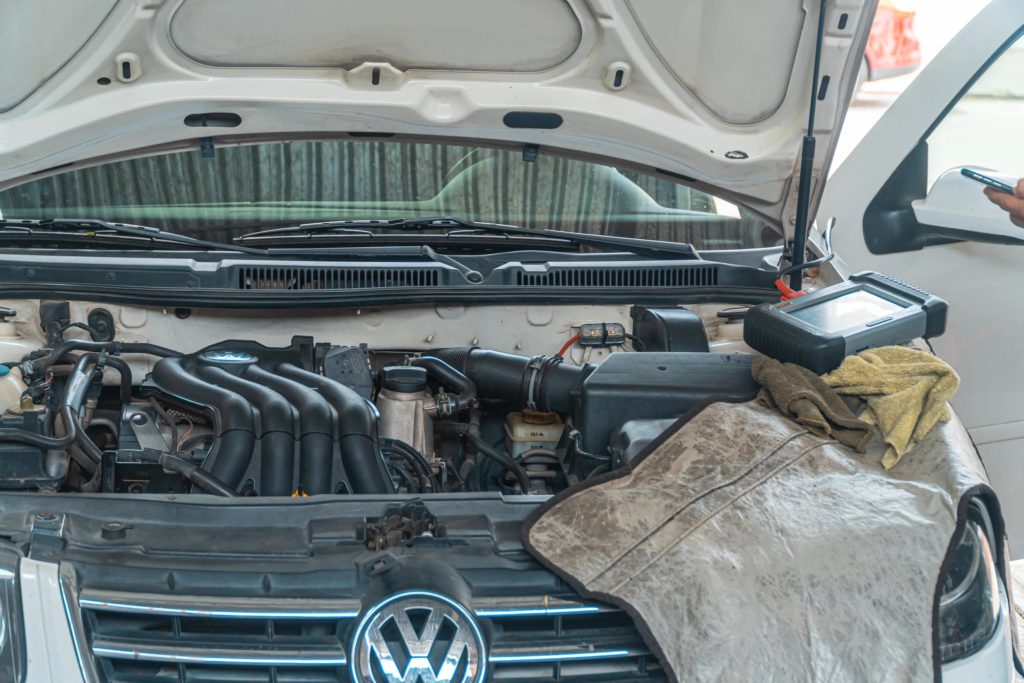Under the Hood – the Third Element of Running your Shop
Published

Shop operations have historically consisted of two elements: Hands-on work with vehicles and marketing. Bring customers in the door, do great work on their cars, send them out the door happy.
Imagine your garage is a car. Your customer is a passenger. You tell people that this car will get them where they need to go (marketing). They get in the car (successful marketing!). Your customer gets where they need to go (great work on their cars).
Most car passengers do not care about how the car works. They do not need to look under the hood. Cars need someone to look under the hood and care about how it works to make sure it’s running smooth.
What does your shop need to run as smoothly as possible? In addition to good marketing and good craftsmanship, all the under-the-hood components that make it run need to be acknowledged, regularly checked, and maintained.
Driven Performance Advisors helps shop owners optimize these components to run as smoothly as possible.
What components am I talking about? Driven Performance Advisors’ 68-point Garage Inspection covers 11 business areas. These areas can be broken into three simple categories. People, process, and tools. This is what keeps a shop business running under the hood.
People
Your people, including yourself, are invaluable. As a specialty shop, your people have specialized knowledge that your customers can only benefit from by coming to your shop. They should therefore be led, directed, compensated, and challenged well.
Your people will stay enthusiastic, engaged, and productive if they have clear expectations, earn a good living, take pride in the brand, and get to enjoy the satisfaction brought by happy customers. Your people will cost you money and leave if they are lost, unmotivated, distracted, and dissatisfied by their work.
It is your responsibility as the shop owner to make sure your people are happy.
Process
When you’re a small shop, it’s ok to keep appointments on paper. You can order supplies only when you need them. Your customers’ car keys don’t need a tag. You can do your accounting once a year.
As you grow, implementing basic processes, or getting organized on your under-the-hood tasks, is essential. Most companies in all industries do this too late. If you do not bring process into your garage as you grow, sooner or later you will feel the pain.
What’s the pain? Missed appointments, uncollected payments, surprise bills, job delays, quality issues, unhappy customers, and more.
It is your responsibility as the shop owner to make sure process is implemented.
Tools
If your people do not have the right tools, your shop cannot run smoothly. In this context, tools are much more than wrenches and sockets.
Tools are manuals, guides, procedures, software, and data. Here are some examples of a good use of tools:
You just locked in a new dealer relationship with a manufacturer who makes roof racks for Ram trucks. You’ve worked on tons of Rams and would love to share this new relationship with your customers. As part of your customer intake process, you take down both phone number and email. You use Mailchimp or a similar email marketing service to blast the new relationship to your customers.
Your shop is a specialty supplier and installer of carbon fiber aero pieces for Subarus. One particularly complicated piece is a splitter with rod braces for the old Baja. One of your techs has figured out a way to install it in half the average time. That tech then leaves the shop because their spouse got a job in another state. You hire a new tech and train them using the how-to guide that your old tech left behind.
A drought hits your region. Your shop has money in the bank, but your diesel tuning and performance company loses all of its farming customers. You have financial data to forecast exactly how much your sales will drop, and what expenses are the first that you can cut to weather the slowdown. You even have the confidence to increase marketing expenditure in other areas to make up the difference.
It is your responsibility as the shop owner to make sure your team has the right tools available.
In conclusion
As the shop owner, you have to make sure that customers come into the garage, spend money with you, and leave happy. On top of that, you have a responsibility to make sure that what goes on in your garage and in your business is running as smoothly as possible.
As you grow, these additional areas become more and more complex. Ask for advice, do your research, and make the time to get your people, process, and tools right.
